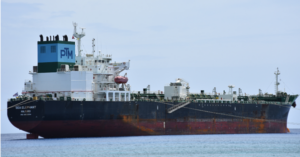Greek banks’ appetite to increase their loan portfolios remains high. However, many clients are adopting a ‘wait and see’ attitude towards newbuilding orders in anticipation of new technology in the years to come, content to be building up their liquidity.
At a time when the shipping industry faces enormous challenges and difficulties on the way to green transition, Greek banks have evolved into a pillar of support for Greek-owned shipping. However, shipping finance lately does not know its best days since the banks are hesitant.
According to the latest analysis, for the 22nd year running, by Petrofin Research of the bank loan portfolios to Greek shipping, bank ship finance for Greek shipping has decreased during 2022 by 1.3%. The overall Greek loans booked both in Greece and worldwide for the year 2022 are down to $51,909.77m, compared to $52,580.03m in 2021, $49,794.51m in 2020, $53,107.8m in 2019, $53,176.32m in 2018, $53,994.96m in 2017 and $57,211.35 in 2016.
The number of banks involved in Greek ship finance has gone down to 50 from 56.
Credit Suisse’ last entry in Petrofin´s research remains in the top position with a further portfolio reduction of 1.79% in 2022 following the portfolio reduction of 12.5% in 2021. The future of its loan portfolio is under internal review, in accordance with the analysis.
The data from the Petrofin Research survey for the year 2022 shows the top banks that finance Greek shipping.
Credit Suisse which owns 10.6% ($5.5 billion) of the Greek shipping portfolio.
Alpha Bank with 6.81% (3.535 billion)
Eurobank with 6.65% (3.450 billion)
Citi also with 6.65% (3.450 billion)
Piraeus with 6.33% (3.2 billion)
National Bank with 2.7 billion has a percentage of 5.37%.
ABN AMRO with a percentage of 4.24% of Greek shipping portfolio as at the end of the year 2022. Aegean Baltic with 443.86 million owns 0.86% of the Greek shipping portfolio.
HSBC has announced its withdrawal from Greek ship finance and its presence in Greece and already part of its portfolio has been committed to be sold to other banks.
Watson Farley & Williams (WFW) confirmed that Greece’s Piraeus Bank has acquired the highest number of HSBC’s Greek shipping loans, as Shipping Telegraph wrote on June 14, 2023.
The global law firm said it advised Piraeus Bank on the acquisition of 26 bilateral loan facilities from HSBC Bank worth US$265m. This transaction resulted from HSBC’s decision to sell its Greek shipping portfolio.
Credit Suisse was a big financier for Greek shipowners. However, Greek ship lending portfolio shifts to UBS as part of an emergency rescue takeover, after the acquisition of Credit Suisse by UBS.
Furthermore, it is likely that Greek banks shall be the largest lenders with 4 entries in the top 10 banks, as the analysis says.
Comparing 2022 to 2021, 9 banks have increased their loan portfolios and 16 banks have showed reduction.
Also international banks with a Greek presence marked a significant reduction of 17.51% in 2022, after 2021’s small growth of 3% which had followed the significant drop of 19% in 2020.
”The Petrofin Index of the Greek shipping portfolios (2001-2022) has fallen from a high of 443 in 2008 to 314 in 2022, a decrease of 29.14%. The Graph shows the increased Greek fleet in dwt terms, which has almost doubled since 2009. The above graph raises the paradox of a fall in bank shipping finance, whilst the Greek fleet grew substantially over the years. The main reasons lie with the development of leasing and alternative sources of finance, as well as the use of own private capital resources and access to public markets,” as it is highlighted in the research of Petrofin.



